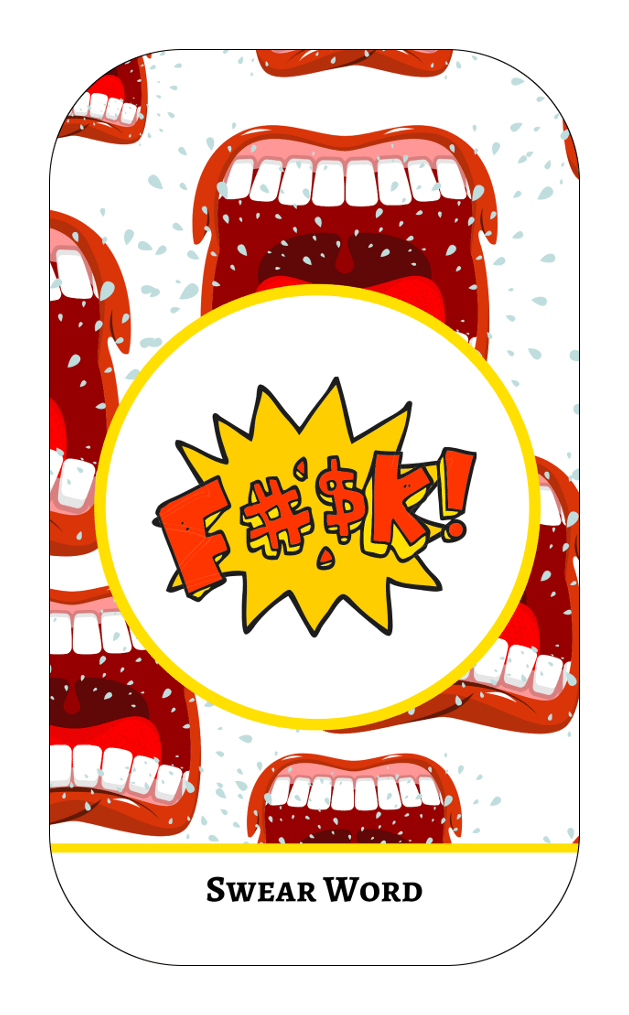Swear Word
Interpretation & Meaning

When the class started using horrific language, education in the small British school became a war on profanity.
In a slick attempt at self-censorship, the kids tried replacing all the motherf***er and c**t of this world with the plain term swear word.
You could have walked through the corridors and heard an animated “Shut up, you swear word!” coming out of a giggly fourth-grader’s mouth. To the teachers, that sounded innocent enough and felt like a glorious victory.
At least until the moment when, a couple of weeks later, that harmless surrogate of vulgarity became so meaningful that children started taking genuine offense from it. Suddenly, swear word had become the swear word and the issue was right back where it started.
When this card shows up in a reading, it’s time to think hard about everything that everything in your life means at this particular moment.
As much as worldly things appear to be anchored in definition by molecular composition, contractual agreements and scientific laws, all the human mind really experiences is the meaning of what’s around. We’re used to navigating a web of stories – both cultural and personal – that sometimes serve us well and sometimes bring us down. What this card wants you to do is stop and reflect on the relationship between yourself and these stories.
Start wondering who controls the meaning of the things you do or don’t, the people you love or hate, the opinions you adopt and the ones you reject. Make an inventory of all the narratives you have subscribed to and try to assess if they’re truly good for you.
Whether you need to acknowledge a shift of meaning in your life, debunk social constructs or apply the power of reframing to a difficult situation, it’s critical to notice how much we’re affected by the stories we tell ourselves, are told and tell to others.
This card ensures the path to enlightenment goes through a thorough review of all the meaning we are currently taking for granted.
Keywords: cultural narratives • personal narratives • social constructs • reframing • meaning • debunking • control the narrative • decoding reality • cultural stereotypes
Practical References
| Places | Cinema, Theater |
| Work | Writer, Marketer, Curator, Journalist |
| Situations & Life Events |
Moral Panic, Group think, Gaslighting |
| Activities | Writing, Debunking |
| Archetypes | The Independent Thinker |
Homework & Practice
In order to embody the teachings of this card, you can:
- Pay attention to the language you use: the narratives we have assimilated tend to surface in the way we express ourselves. Using milder terms to express your thoughts or emotions is a great first step to turn any extreme view of the world into a more realistic one
- Read the newspaper and pick three topics. How do you feel about them? What is the cultural consensus? How do your views tie to the ones of the society you inhabit? If they differ, try to ask yourself what’s wrong in the dominant narrative that you cannot accept. If they go hand in hand, could you imagine or recall a point in time when the script was flipped and how it would feel to subscribe to a completely different narrative?
- Think about a story that changed your mind over a specific issue. Reflect on the power that narratives hold on everyone’s perspective and try to recall how the process of rewiring your opinions unfolded. What swayed you to the other side? What cognitive muscles did you have to flex? What detail of that specific story won you over and how much resistance did you put up?
Ready for your first reading?
